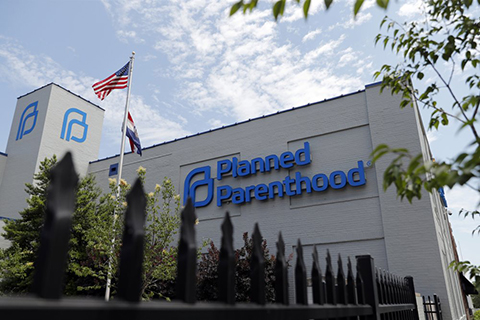Iowa’s high court said Wednesday (6/30) that the state may refuse to allow Planned Parenthood to conduct sex education programs funded by federal grants, reversing a judge’s ruling last year that found the law unconstitutional.
The Iowa Supreme Court found the 2019 law passed by the Republican-controlled Legislature is constitutional, rejecting Planned Parenthood of the Heartland’s complaint that the law violated its right to equal protection and that the law served no rational legitimate government interest.
State court Judge Paul Scott ruled in May 2020 that Planned Parenthood would likely prevail at trial on its equal protection claim and he blocked the law’s implementation. The state appealed.
The six justices appointed by Republican governors agreed that the Iowa Legislature could have reasonable concerns that allowing an abortion provider to teach sex education could undermine its goals of promoting abstinence and reducing teenage pregnancy.
“The state could also be concerned that using abortion providers to deliver sex education programs to teenage students would create relationships between the abortion provider and the students the state does not wish to foster in light of its policy preference for childbirth over abortion,” the majority of justices said in an opinion written by Justice Dana Oxley, an appointee of Gov. Kim Reynolds, who signed the bill into law.
The court concluded that Planned Parenthood’s practice of providing abortions would not be affected by the state’s refusal to give it grant money for sex education programs.
The court’s lone Democratic appointee, Justice Brent Appel, disagreed in a dissenting opinion that said the Legislature “through unconstitutional conditions in these statutes is trying to accomplish indirectly what it cannot do directly: namely, attack abortion rights.”
The law expressly prohibited for the first time an abortion provider from receiving the grant money to teach sex education in the Community Adolescent Pregnancy Prevention Program administered by the Iowa Department of Human Services and the Personal Responsibility Education Program administered by the Iowa Department of Public Health.
Planned Parenthood had received the funding for years. As a condition of the grants, recipients must use state-selected educational materials that do not allow discussion of abortion. The funds for the programs are prohibited from being used to support abortion-related services. In the case, the state had agreed that Planned Parenthood has neither used grant funding for abortion-related services nor discussed abortion as part of the educational programming.
Regardless, the court concluded that the Legislature could have passed the law “out of concern that its message could be diluted if PPH, the primary abortion provider in the state, delivered the state-sponsored sexual education programs.”
Planned Parenthood said in a statement that it has received the funding since 2005 and has used Iowa’s state-approved curriculum to provide sex education to tens of thousands of Iowa youth. The organization currently provides sex education at more than 30 schools and 15 community-based youth-serving organizations across Iowa.
“We are disappointed that the law was upheld because we understand the harm to young Iowans that will result from this decision. We were privileged to support Planned Parenthood in the vital work they do every day to empower Iowans with sex education and teen pregnancy prevention programming,” said Rita Bettis Austen, legal director for the American Civil Liberties Union of Iowa, which provided legal support in the case.
Reynolds, in a statement, called the ruling “a strong statement in support of the idea that taxpayer dollars should not fund abortion.” She said she is “proud to be a pro-life governor who will protect all innocent life.”




